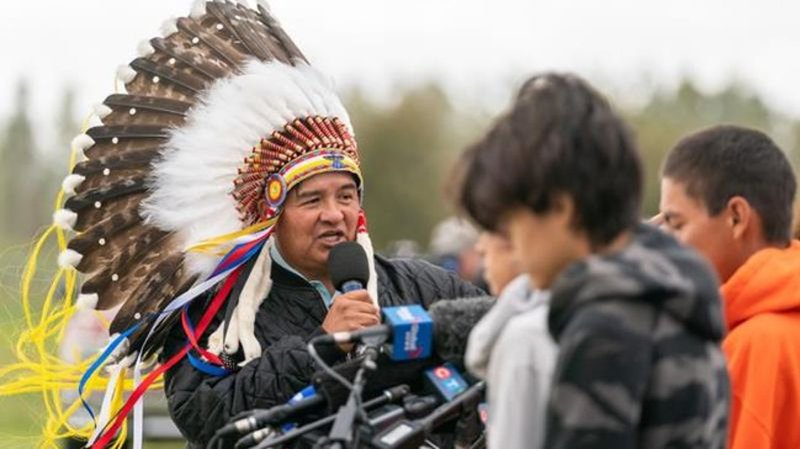
‘If all else fails, we will blockade’: Chiefs call for Sask. bill to be scrapped
SASKATOON — Chiefs in Saskatchewan sent a message to the provincial government to scrap a controversial bill or the new year could start with blockades.
“Political avenues, legal avenues are in place,” Federation of Sovereign Indigenous Nations Chief Bobby Cameron said.
“If all else fails, we will blockade.”
The Saskatchewan First Act passed its second reading in November. The bill would unilaterally amend the Constitution to assert provincial jurisdiction over resources and set up a tribunal to be used in future court cases.


